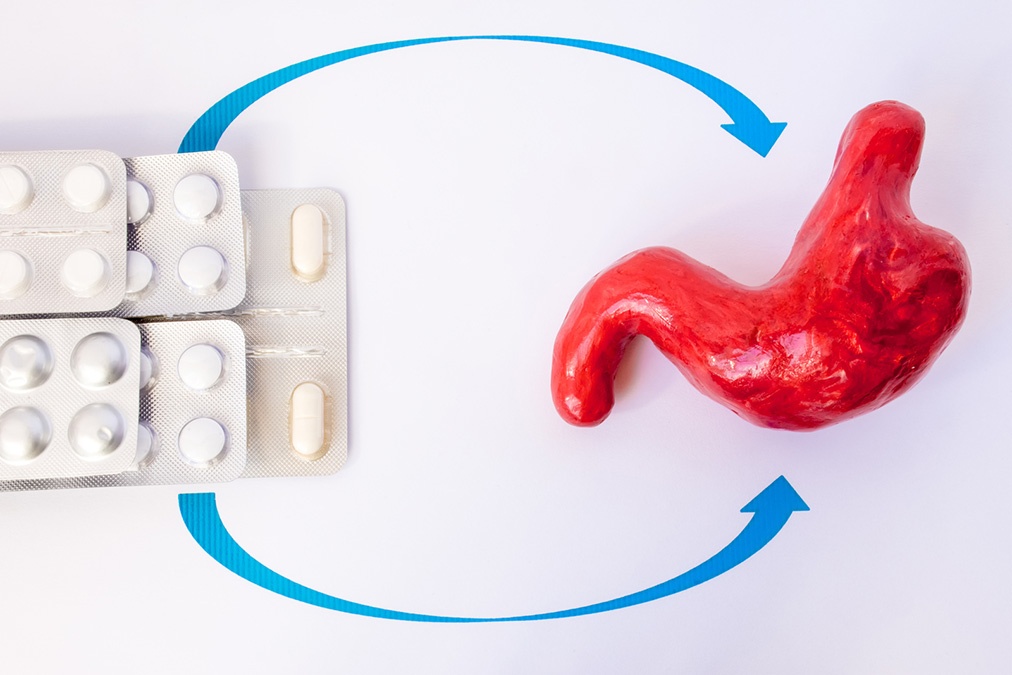 Proton pump inhibitors (PPIs) have been proven to cause several types of fatal diseases, including cancer.
Proton pump inhibitors (PPIs) have been proven to cause several types of fatal diseases, including cancer.
A new study, published in the journal Nature Communications, reveals yet another dangerous disease. Allergic reactions!
And the danger gets stronger as we get older.
The researchers consulted the health insurance records of 8.2 million people, covering around 97 percent of the Austrian population.
They evaluated drug prescriptions between 2009 and 2013 to see which drug was most commonly prescribed after the prescription for a stomach acid suppression drug.
Shockingly, people who had received an acid suppression drug were two to three times more likely to receive a subsequent prescription for anti-allergy medication than they were to receive a prescription for any other medication type.
This is too high to be coincidental.
In fact, the likelihood of receiving anti-allergy medication after an acid suppression drug increased with age, with people over the age of 60 being five times more likely to receive an anti-allergy drug than any other drug.
Stomach acid is vital for several reasons: it enables your body to successfully digest proteins, and it kills organisms and other substances that may otherwise enter your digestive tract.
When you take drugs that suppress the production of stomach acid, you make it more likely that organisms and substances can enter your digestive tract to cause irritation and infections.
In addition, such drugs change the makeup of the bacterial colonies inside your intestines, which, in turn, causes changes in your immune system. It is possible that these immune system changes can make your body inappropriately sensitive to harmless substances, which is basically the definition of an allergy.
This may be the reason why acid reflux drugs have been proven to cause many lethal diseases, including a few types of cancer.

 Overcoming IBD
Overcoming IBD Multiple Sclerosis
Multiple Sclerosis Banishing Bronchitis
Banishing Bronchitis Gum Disease Gone
Gum Disease Gone Overcoming Onychomycosis
Overcoming Onychomycosis Neuropathy No More
Neuropathy No More The Prostate Protocol
The Prostate Protocol Brain Booster
Brain Booster
 Ironbound
Ironbound
 Solution for Shingles
Solution for Shingles
 The Bone Density Solution
The Bone Density Solution
 The Ultimate Healing Protocol
The Ultimate Healing Protocol
 The Parkinson's Protocol
The Parkinson's Protocol
 The Chronic Kidney Disease Solution
The Chronic Kidney Disease Solution
 Overthrowing Anxiety
Overthrowing Anxiety The Fatty Liver Solution
The Fatty Liver Solution The Hypothyroidism Solution
The Hypothyroidism Solution
 The End of Gout
The End of Gout The Blood Pressure Program
The Blood Pressure Program
 The Oxigized Cholesterol Strategy
The Oxigized Cholesterol Strategy
 Stop Snoring And Sleep Apnea Program
Stop Snoring And Sleep Apnea Program
 The Arthritis Strategy
The Arthritis Strategy The Vertigo & Dizziness Program
The Vertigo & Dizziness Program The 3-Step Diabetes Strategy
The 3-Step Diabetes Strategy Hemorrhoids Healing Protocol
Hemorrhoids Healing Protocol The Erectile Dysfunction Master
The Erectile Dysfunction Master Weight Loss Breeze
Weight Loss Breeze The IBS Program
The IBS Program The Insomnia Program
The Insomnia Program The Migraine and Headache Program
The Migraine and Headache Program The Neck Pain Solution
The Neck Pain Solution The Menopause Solution
The Menopause Solution The Ejaculation Master
The Ejaculation Master The TMJ Solution
The TMJ Solution The Acid Reflux Solution
The Acid Reflux Solution The Fibromyalgia Solution
The Fibromyalgia Solution The Psoriasis Strategy
The Psoriasis Strategy